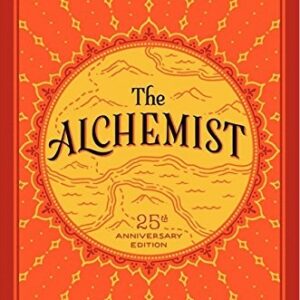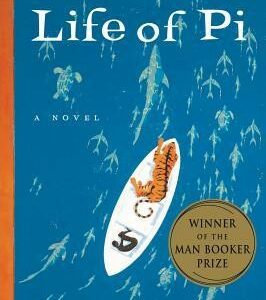American Examples
$29.95
| Title | Range | Discount |
|---|---|---|
| Trade Discount | 5 + | 25% |
- Description
- Additional information
Description
Fresh new perspectives on the study of religion, ranging from SoulCycle to Mark Twain
American Examples: New Conversations about Religion, Volume Two, is the second in a series of annual anthologies produced by the American Examples workshop hosted by the Department of Religious Studies at The University of Alabama. In the latest volume from this dynamic academic project, nine scholars with diverse topics and methodologies vividly reimagine the meaning of all three words in the phrase “American religious history.” The essays use case studies from America, broadly conceived, to ask trenchant theoretical questions that are of interest to scholars and students beyond the subfield of American religious history.
Cody Musselman uses a Weberian analysis to explore questions of identity, authority, and authenticity in the world of SoulCycle while Zachary T. Smith finds commonality between the rhetoric and practices of scholarship and mixed martial arts. Erik Kline provides a new perspective on the psychedelic mysticism of the 1960s, and Brook Wilensky-Lanford takes stock of the cultural power of parody in Mark Twain’s last work of fiction. Christopher Cannon Jones examines the reciprocal relationship between religious texts and cultural contexts by comparing early Mormon missions to Hawai‘i and Jamaica and Lindsey Jackson explores what debates over circumcision can tell us about gender stereotypes and motherhood. Dana Lloyd uses the 1988 Supreme Court decision in Lyng v. Northwest Indian Cemetery Protective Association as a case study in order to consider how Indigenous religion and sovereignty have been understood and adjudicated in the American legal system. Matt Sheedy studies the identity categories of “atheist” and “ex-Muslim” and Brad Stoddard uses ethnographic fieldwork to evaluate the role of religious pluralism in regulating and policing correctional institutions. Editors Samah Choudhury and Prea Persaud provide an introduction that reconsiders the trajectory of the American Examples project in light of the siege on the US Capitol in January 2021 and the continuing COVID pandemic.
Visit americanexamples.ua.edu for more information on upcoming workshop dates and future projects.
CONTRIBUTORS Michael J. Altman / Samah Choudhury / Lindsey Jackson / Christopher Cannon Jones / / Erik Kline / Dana Lloyd / Cody Musselman / Prea Persaud / Matt Sheedy / Zachary T. Smith / Brad Stoddard / Brook Wilensky-Lanford
American Examples: New Conversations about Religion, Volume Two, is the second in a series of annual anthologies produced by the American Examples workshop hosted by the Department of Religious Studies at The University of Alabama. In the latest volume from this dynamic academic project, nine scholars with diverse topics and methodologies vividly reimagine the meaning of all three words in the phrase “American religious history.” The essays use case studies from America, broadly conceived, to ask trenchant theoretical questions that are of interest to scholars and students beyond the subfield of American religious history.
Cody Musselman uses a Weberian analysis to explore questions of identity, authority, and authenticity in the world of SoulCycle while Zachary T. Smith finds commonality between the rhetoric and practices of scholarship and mixed martial arts. Erik Kline provides a new perspective on the psychedelic mysticism of the 1960s, and Brook Wilensky-Lanford takes stock of the cultural power of parody in Mark Twain’s last work of fiction. Christopher Cannon Jones examines the reciprocal relationship between religious texts and cultural contexts by comparing early Mormon missions to Hawai‘i and Jamaica and Lindsey Jackson explores what debates over circumcision can tell us about gender stereotypes and motherhood. Dana Lloyd uses the 1988 Supreme Court decision in Lyng v. Northwest Indian Cemetery Protective Association as a case study in order to consider how Indigenous religion and sovereignty have been understood and adjudicated in the American legal system. Matt Sheedy studies the identity categories of “atheist” and “ex-Muslim” and Brad Stoddard uses ethnographic fieldwork to evaluate the role of religious pluralism in regulating and policing correctional institutions. Editors Samah Choudhury and Prea Persaud provide an introduction that reconsiders the trajectory of the American Examples project in light of the siege on the US Capitol in January 2021 and the continuing COVID pandemic.
Visit americanexamples.ua.edu for more information on upcoming workshop dates and future projects.
CONTRIBUTORS Michael J. Altman / Samah Choudhury / Lindsey Jackson / Christopher Cannon Jones / / Erik Kline / Dana Lloyd / Cody Musselman / Prea Persaud / Matt Sheedy / Zachary T. Smith / Brad Stoddard / Brook Wilensky-Lanford
Fresh new perspectives on the study of religion, ranging from SoulCycle to Mark Twain
Samah Choudhury is assistant professor in the Department of Philosophy and Religion at Ithaca College. Her research surrounds American Muslim humor as it relates to formations of race and racialization, Muslim masculinities, and secularism in the United States. She holds a doctorate in Islamic studies from UNC Chapel Hill.
Prea Persaud is lecturer in the Department of Religious Studies at the University of North Carolina Charlotte, where she teaches classes on Hinduism, religion in the Americas (inclusive of the Caribbean), and issues concerning race, identity, and postcolonialism.
Michael J. Altman is director of the American Examples working group and associate professor of religious studies at the University of Alabama. He is the author of Heathen, Hindoo, Hindu: AmericanRepresentations of India, 1721–1893.
“Altman and his cohort of early career scholars ask us to focus on the ‘religion’ in the study of American religion. Each author demonstrates how their research, as an ‘example,’ sheds light not on the particularities of the United States, but rather, the theorization of religion anytime, anywhere. The volume is commendable for its emphasis on process and conversation, as well the vigor with which it invites readers to join a ‘new conversation.’”Prea Persaud is lecturer in the Department of Religious Studies at the University of North Carolina Charlotte, where she teaches classes on Hinduism, religion in the Americas (inclusive of the Caribbean), and issues concerning race, identity, and postcolonialism.
Michael J. Altman is director of the American Examples working group and associate professor of religious studies at the University of Alabama. He is the author of Heathen, Hindoo, Hindu: AmericanRepresentations of India, 1721–1893.
—Jennifer Graber, author of The Gods of Indian Country: Religion and the Struggle for the American West
“It is rare that I can sit down with an edited volume and find each essay just as stimulating, interesting, and incisive as the one before it, but Altman and the contributors to American Examples have accomplished just that. Altman certainly has, as he puts it, started a ‘new conversation,’ and it is my sincere hope that this conversation will become a central voice in the future of the study of religion.”
—Leslie Dorrough Smith, author of Compromising Positions: Sex Scandals, Politics, and American Christianity
“American Examples seeks nothing less than to shake the founding assumptions of American religious history. What happens, these contributors ask, if we approach our archives not with the question of how they fit into a broader historical narrative but ask instead: what does this tell us about ‘religion’ or ‘America’? What does the field look like if we foreground the religious studies focus of J. Z. Smith rather than the normative assumptions of narrative history? This volume offers a timely, provocative contribution to the field and will be sure to inspire debate!”
—Anthony Petro, author of After the Wrath of God: AIDS, Sexuality, and American Religion
Additional information
| Dimensions | 1 × 6 × 9 in |
|---|








